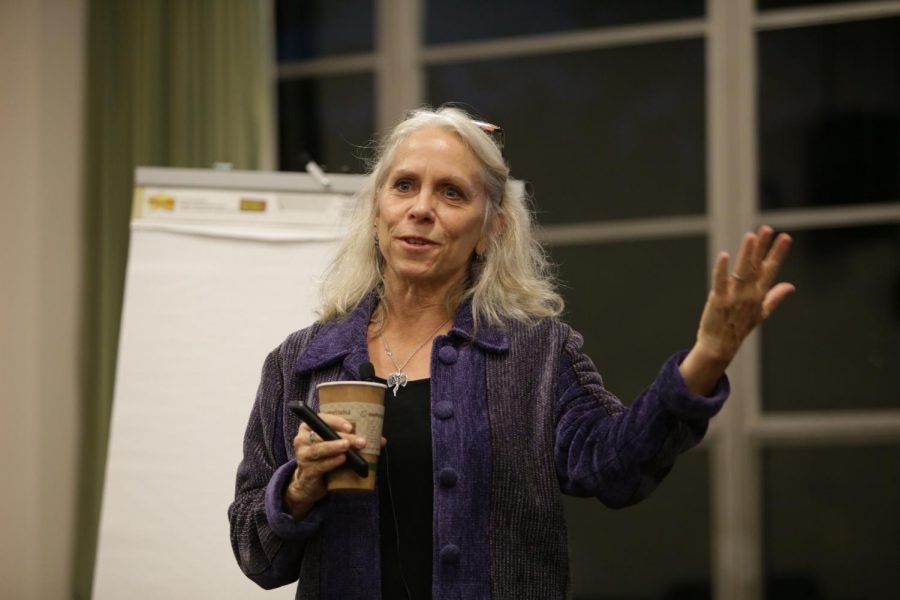On Tuesday evening in the Cape Cod Lounge, students and community members attended a discussion led by activist Robyn Ochs to celebrate Bisexual Visibility Day and begin a week-long celebration of bisexual visibility.
The conversation centered around biphobia, bi erasure and the experiences and challenges many bisexual and non-binary sexually identifying people face in their lives.
Ochs noted that this month marks the 42nd year since she first identified as bisexual, explaining she fell in love with a woman for the first time in her first year of college.
“I got stuck in the space between knowing and being,” Ochs said, “I didn’t know how to be a bisexual person.”
It wasn’t until five years later that Ochs publicly identified as bisexual after a coworker disclosed their bisexuality.
In discussing challenges bisexual people face, Ochs asked members of the audience about various stereotypes about bisexuality and wrote the stereotypes on a large, white poster paper at the front of the audience.
Greedy, one student said.
Promiscuous, another student said.
Not gay enough, not straight enough, more likely to cheat, others added.
Jinyu Chen, a sophomore animal science major, described biphobia and bi erasure as “oppressive attitudes, actions, expressions against any people who do not identify in the binary.”
Ochs was confused about coming out, she said, because of the harmful stereotypes like the ones listed. Marginalization within and between marginalized communities, Ochs explained, happens often. She faced stereotyping inside and outside of the LGBTQIA+ community.
“I was frozen with uncertainty. I was confused, but not about my identity,” Ochs said, “I was confused about how to exist in this world.”
When Ochs asked the audience about the unique challenges non-binary sexual identities face, Rae Painter, a transfer computer science major brought up the assumption that one can only be attracted to one sex.
“When someone says, ‘Hey, I’m really attracted to someone of the same sex,’” Painter said, “‘You’re gay, you’re lesbian!’”
“Bisexuality has to be earned like a badge,” Painter added.
Ochs recognized the many identities that comprise the sexuality continuum. She said intersectionality, a term coined by scholar and law professor Kimberlé Crenshaw, has completely shaped her work.
“This program is not about any one identity,” Ochs said.
Ochs discussed “minority stress,” a form of high stress faced by members of stigmatized minority groups, and its effects and causes on bisexual and non-binary identifying people.
According to data and research Ochs gathered, non-binary identifying people have higher rates of suicide than binary identifying people.
Despite these grim statistics, Ochs spoke about the importance of speaking oneself into existence.
“My bisexuality is how I understand myself,” Ochs said, “It is how I interpret my own experience.”
Elizabeth Donoghue can be reached at [email protected].



















